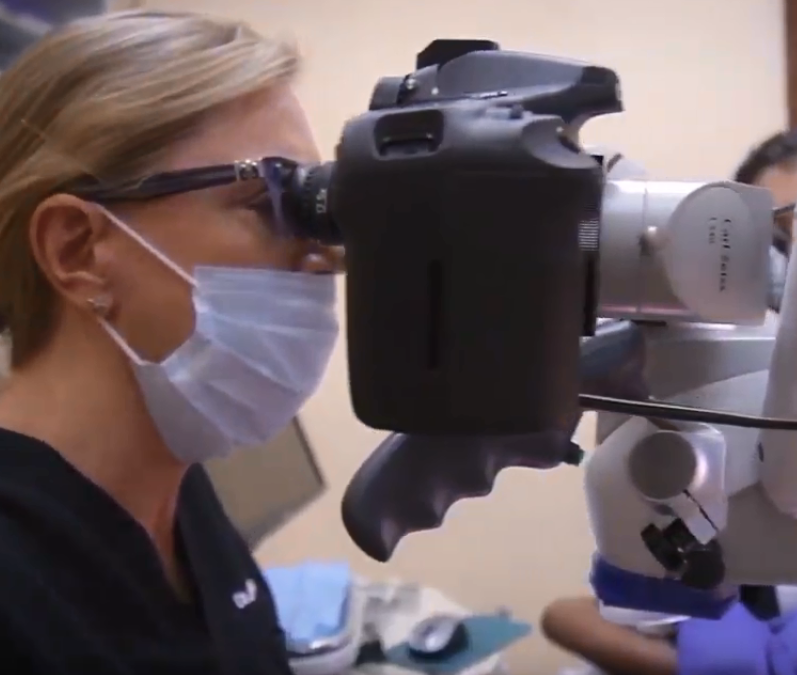
by Dr. Jacqueline S. Allen | Aug 23, 2021 | Blog, Dental Implants, Phoenix Endodontic Group
Nothing can replace an in-depth conversation with your dental provider if you want to clearly understand your oral health. At no time is this more true than when you’ve been told you have failing natural teeth and might want to consider dental implants.
We’ve compiled a list of questions that will help guide your conversation with your dentist and help you understand the why, how, and what of dental implant procedures.
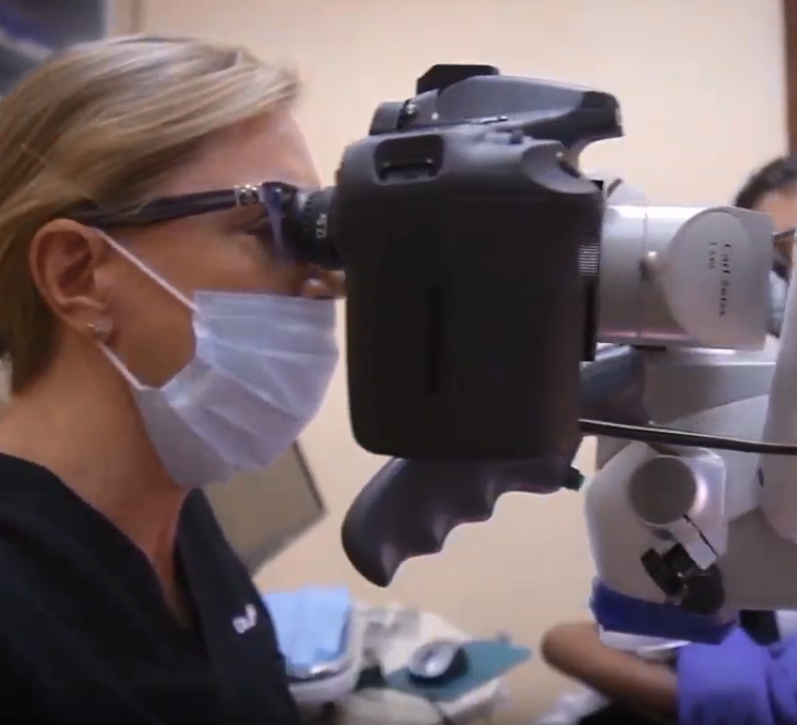 Top Dental Implant Questions
Top Dental Implant Questions
- Does this mean my natural tooth (teeth) can’t be saved? Yes. Otherwise, you’d probably be talking with your endodontist about a root canal or other procedure aimed at saving the tooth.
- How many teeth will be replaced by the implants? Dentists can replace a single tooth, a number of teeth, or an entire set of teeth with dental implants.
- How much is this going to hurt? The implant procedure itself is usually pain-free, thanks to general or local anesthesia. Factors that can influence how much pain you feel afterwards include: having teeth extracted prior to your implant procedure; how closely you follow post-operative instructions on taking painkillers and antibiotics; how well you avoid foods that might aggravate the treated area; and if you follow good oral hygiene while the affected area is healing.
- How many visits to my dentist will this take? Typically, you can count on at least two visits to complete the dental implant procedure. The first visit is to remove any failing natural teeth and embed the implant in your jaw. A second visit is necessary to add a dental restoration (which resembles a crown and functions like your natural tooth) or to replace a temporary restoration, if you received a same-day implant (see below). You may also need a separate appointment to have a bone augmentation procedure in order to increase the chances of your dental implant being successful in the long term.
- How soon can I eat with my new teeth? All dental implants require a healing period, during which the metal implant integrates into the jaw. Some patients must eat with their remaining natural teeth, if they have any. Other patients are candidates for what is known as same-day implants or “teeth in a day,” a procedure in which the dental implants are placed in the jaw and a set of temporary overdentures are placed on top of them on the same day. In either case, during this time you’ll need to eat soft, non-irritating foods to ensure the implants integrate successfully.
- What care do my dental implants require? There are two key steps to promote long life for your implants. First, daily care is a must. Brush all your teeth twice a day and floss them daily. Second, get regular dental check-ups. Check-ups are especially critical for patients with implants.
“Dental implants are an excellent choice for many patients, but we find the most success when patients understand why they are receiving implants and what it takes to care for them,” says Dr. Jacqueline S. Allen of the Phoenix Endodontic Group.

by Dr. Jacqueline S. Allen | Jul 20, 2021 | Blog, Endodontics, Endodontist, Phoenix Endodontic Group, Root Canal
While persistent pain is a common sign that a tooth is in trouble and may need root canal treatment, it isn’t the only indicator. If your tooth doesn’t hurt but you have other symptoms, you shouldn’t ignore the problem until it DOES.
To understand why pain should not be your only indicator to check with your endodontist to see if you need a root canal, let’s look at how dental professionals assess a potential root canal case.

You May Need A Root Canal – Whether You’re In Pain Or Not!
When you go to the endodontist to be evaluated for a root canal, they will take x-rays of your teeth, as well as examine your mouth and gums carefully, performing tests to determine if your tooth’s nerve pulp is damaged. They will ask you questions about symptoms you may be experiencing. Some conditions that will definitely get their attention include:
- Swollen gums. Often, waste products from a tooth with dying or dead pulp will build up near the affected tooth, causing tenderness and swelling in your gums. The swelling doesn’t have to be constant to be of concern.
- Gum boils. This term refers to a small pimple-like pocket of pus that can form on the gum near the affected tooth. If the boil drains into your mouth, you may experience an unpleasant taste in your mouth or bad breath.
- An individually darkened or discolored tooth. A tooth that is noticeably darker than those around it can signal that the tooth has experienced some sort of trauma or damage. While not every darkened tooth needs a root canal treatment, discoloration frequently prompts investigation to clarify what is going on inside the roots of the tooth.
- Tooth mobility. If an individual tooth feels loose, your endodontist will want to evaluate the cause. A loose tooth can be caused by acidic waste products from an infection softening the bone around that tooth’s root.
- A chip or crack in the tooth. Even if it isn’t causing pain yet, chips and cracks in the enamel of a tooth can let in infection, allowing damage to the nerve pulp that can only be treated with a root canal.
“Tooth pain can indicate a variety of dental conditions best treated with prompt intervention,” says Dr. Allen, who practices with the Phoenix Endodontic Group. “However, pain is not the only or even sometimes the most reliable signal that something needs attention. Your endodontist has the equipment and the experience to evaluate your symptoms and discuss whether a root canal or another type of procedure is needed to return your mouth and gums to full health.”
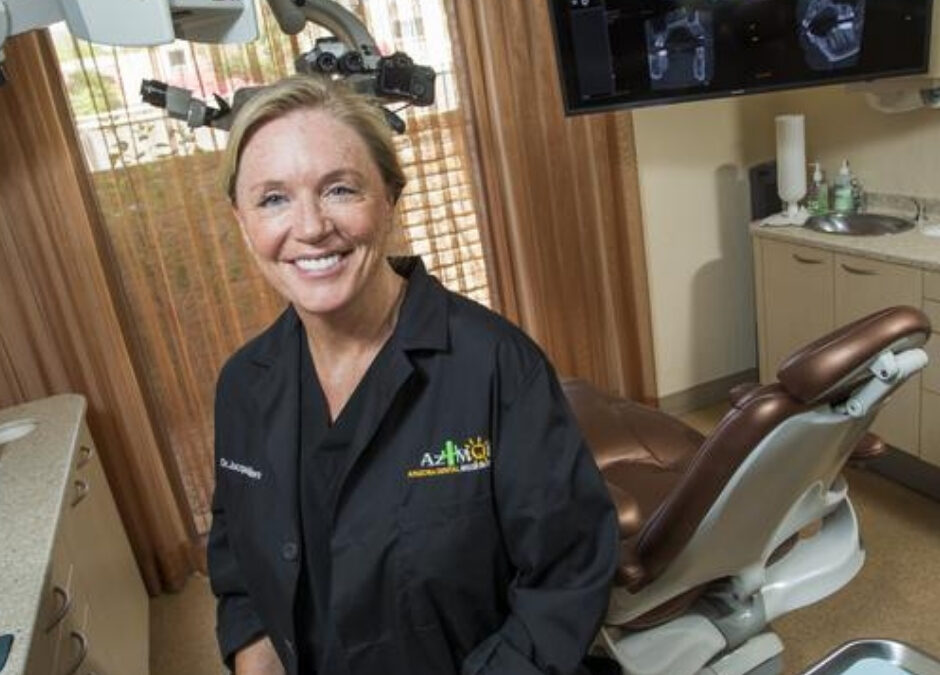
by Dr. Jacqueline S. Allen | Jun 22, 2021 | Blog, Endodontics, Endodontist, Phoenix Endodontic Group, Root Canal
Although root canal treatments have an overall success rate that exceeds 90 percent, patients who have never needed endodontic treatment may be concerned with how much time it will take to recuperate. The good news is that most people can go back to work or school the day after a root canal treatment. However, it often requires two visits to complete a root canal, spaced out over several weeks’ time, depending on individual circumstances.
You can make your recovery after a root canal treatment as smooth as possible by following a few simple guidelines in the hours, days, and weeks after treatment.
 Root Canal Treatment Recovery Tips
Root Canal Treatment Recovery Tips
Hours after your procedure: It’s possible to experience discomfort after your root canal, but this is usually mild to moderate for most people and can be easily managed with over-the-counter pain relievers. You can protect your newly treated tooth by making sure that you:
- Eat soft foods, such as applesauce or yogurt, that require little chewing.
- Avoid hot or crunchy foods.
- Minimize chewing with the tooth that’s been treated.
Days after your procedure: If you had pain before your procedure, it’s possible you’ll have sensitivity in the tooth that received the root canal treatment. If over-the-counter pain relievers are not effective, you should contact your endodontist for further instructions. Also, while you should immediately resume brushing and flossing after your root canal, take extra special care with the area around the affected tooth so as not to dislodge the temporary filling that the endodontist placed over the root canal to keep it sanitary and protected.
Weeks after your procedure: Any discomfort you have in the days after your root canal should subside quickly. If the pain does not go away, or increases, call your endodontist for a recheck. Pain can be an indicator that the tooth has become re-infected, or has an undetected crack.
Also, you should make an appointment with your endodontist for some weeks after your initial root canal treatment to have a permanent restoration, usually a crown, placed over the top of the treated tooth. This is essential to keeping your natural tooth healthy for a lifetime.
“One of the most essential tools when recovering from a root canal treatment is open communication with your endodontist,” says Dr. Jacqueline S. Allen, who practices with the Phoenix Endodontic Group. “Your practitioner can help you understand how your recovery is progressing, and evaluate whether follow-up care is needed.”
by Dr. Jacqueline S. Allen | May 21, 2021 | Blog, Endodontist, Phoenix Endodontic Group, Root Canal
COVID-19 and its social and economic effects have made 2020 and the beginning of 2021 extraordinarily difficult in many ways. For some of us, it has moved the impact of our daily health routines to the front of our minds. For those with injured, damaged or infected teeth, understanding the urgency of receiving timely endodontic treatment can be of critical importance.
Each May, the American Association of Endodontists focuses on promoting the importance of saving natural teeth. This year’s theme is “Worth Saving!” and as you’ll soon see, there are plenty of reasons to consider root canals or other types of endodontic treatment your first choice for treating your dental problem.
Your Natural Teeth ARE Worth Saving – Here’s Why
- The consequences of losing your tooth or having it extracted can be serious. Your mouth is designed to operate with a full set of natural teeth. Remove one (or more), and the remaining teeth will shift, impacting both the appearance of your smile and your ability to chew.
- The cost of replacing your natural tooth with an artificial one can be substantial. Sometimes a dental implant is the best choice when your natural tooth simply is beyond repair. However, implants can be costly, and while the implant is healing, you may not be able to use that tooth as you normally would.
- Endodontists have extra training and specialized experience in saving teeth. Your general dentist likely has a close partnership with one or more endodontists, upon whom they can rely if one of your natural teeth is endangered. The entire focus of endodontic treatment is saving natural teeth. Endodontists receive two to three years of additional training after becoming a dentist, and once they are in practice, they may perform an average of 25 root canals per week (versus two per week for general dentists).
- Modern root canals and other endodontic treatments effectively relieve pain. Patient perceptions of root canals are changing; in the last generation, improvements in pain management and endodontic technique have greatly reduced postoperative discomfort for root canals. If you come into a root canal with a severely infected tooth, it’s likely the procedure will completely eliminate your pain after a brief recovery period.
“Our job as endodontists is to preserve your natural teeth,” says Dr. Jacqueline S. Allen, who practices with the Phoenix Endodontic Group. “From root canals to retreatments to apicoectomies and more, we have a broad range of options to bring your teeth back to full functioning.”
by Dr. Jacqueline S. Allen | Apr 22, 2021 | Blog, Endodontics, Endodontist, Phoenix Endodontic Group, Root Canal
For many years, comedians have regularly used the term “root canal” to capture any painful experience. The jokes weren’t funny to anyone who actually needed a root canal – fear of pain was sometimes enough to keep them from getting badly needed care.
Today’s root canals, though, have advanced dramatically in terms of technique and technology from 20 or even 10 years ago. In many cases, a root canal now relieves dental pain, instead of intensifying it.
Your endodontist is trained in pain management for root canals and other procedures that involve the roots and nerve pulp of your teeth. The amount of discomfort you experience during and after a root canal will vary with your individual circumstances, but here are some of the most common factors that can impact your pain level.
What Factors Influence Root Canal Pain?
- The amount of infection in or damage to the tooth prior to the procedure. Root canals are performed on teeth with infected, inflamed, or damaged tooth pulp. One common symptom of tooth pulp damage is persistent tooth pain. If your tooth is badly infected before your root canal, it can also be more sensitive afterward.
- How you use pain relievers after your root canal. Some tenderness and sensitivity is expected after the procedure. Your endodontist can provide guidance on when to take over-the-counter pain relievers and what kind of dosing schedule to maintain until the pain is no longer a distraction.
- How closely you listen to and follow post-procedure instructions from your endodontist. After your root canal, you will want to avoid chewing with the affected tooth until it has received a permanent dental restoration (typically a crown). You will also want to choose soft, cool foods like applesauce or yogurt to eat for the first few days. Hard, hot, or crunchy foods increase the likelihood you will feel sensitivity or pain when you eat.
- How quickly you report any severe post-procedure pain. It’s imperative you call your endodontist right away if you experience sharp or severe pain after your root canal; this can indicate that infection has returned. You will need to be seen to assess the situation, and your endodontist can plan additional pain and infection management steps.
“Today’s root canals rarely involve severe pain,” says Dr. Allen, who practices at the Phoenix Endodontic Group. “Your endodontist is your partner in managing discomfort after a root canal and is the first person you should call if that pain becomes severe.”
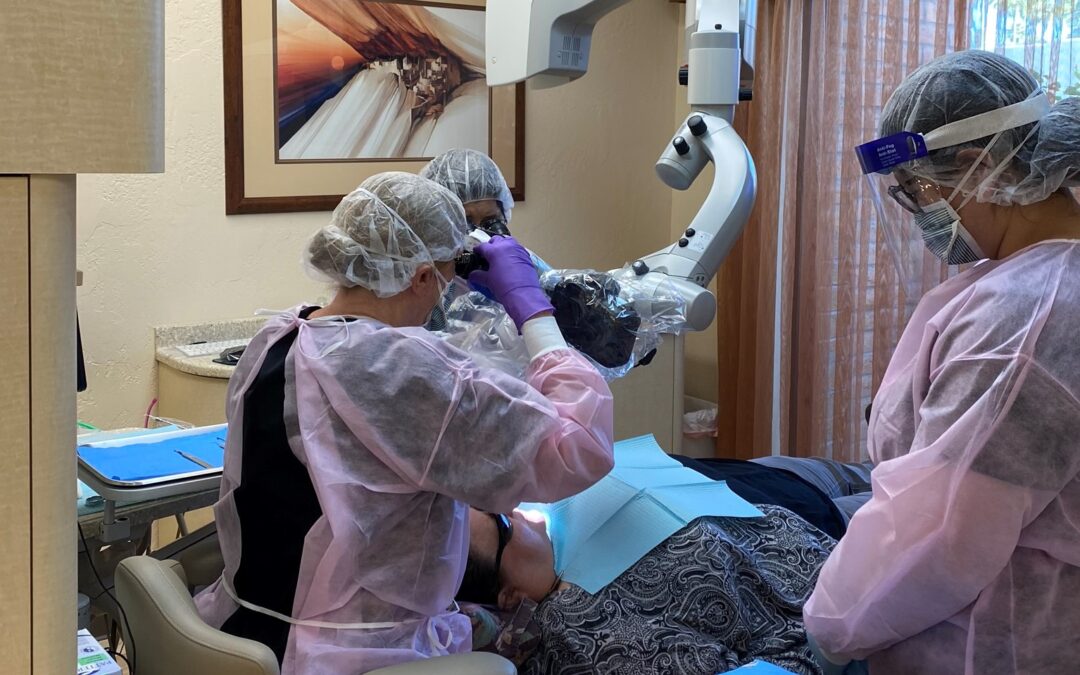
by Dr. Jacqueline S. Allen | Mar 23, 2021 | Blog, Dental Implants, Phoenix Endodontic Group
Dental implants can change your life dramatically. If you were missing teeth before, you now will be able to chew, speak, and smile with a new sense of confidence. However, while dental implants can be successful up to 98 percent of the time, success depends on taking care of your implants. Dental implant care isn’t complicated, but it does help to know how best to protect your implants. Here’s a brief overview of practices to keep your dental implants working for a lifetime.
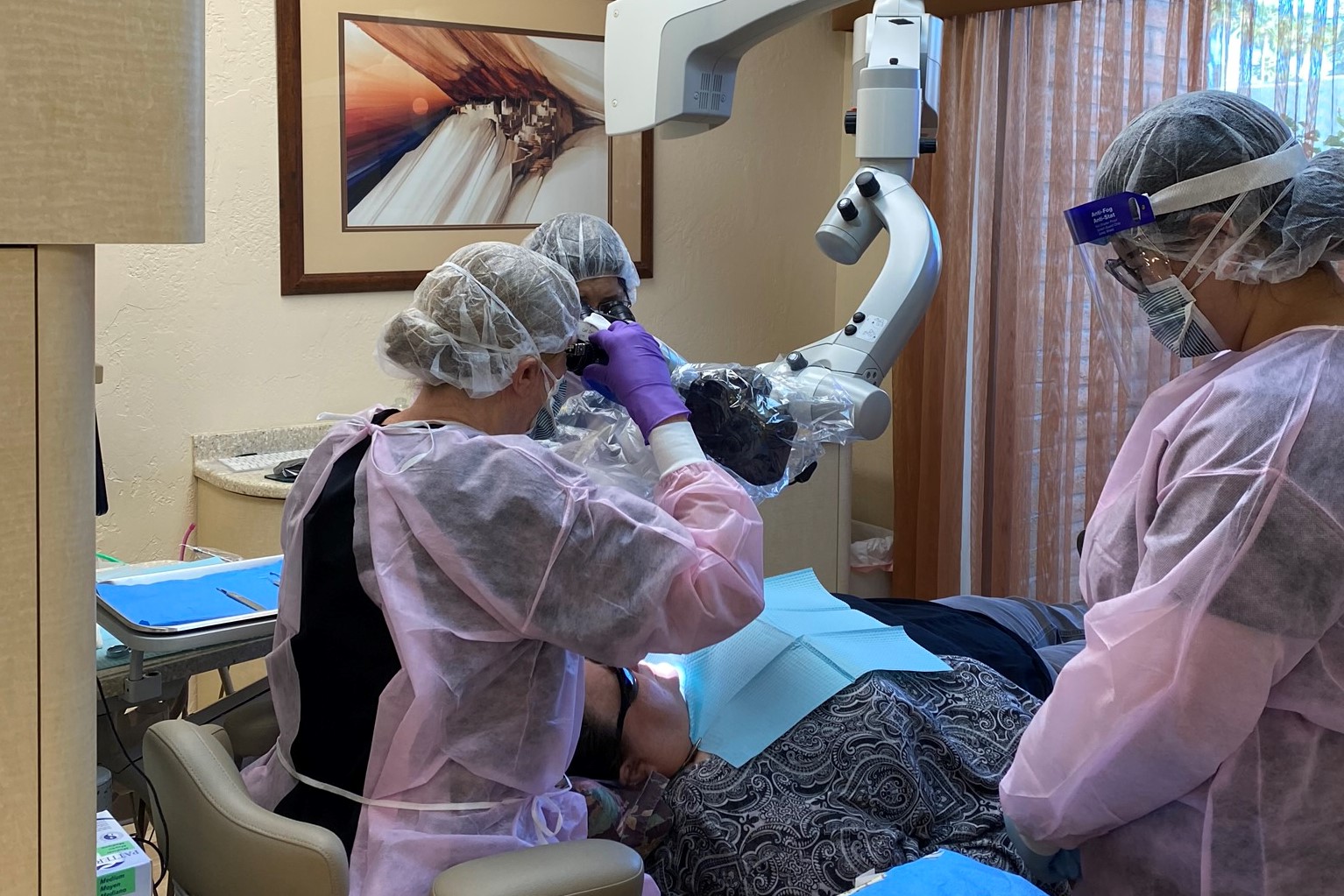
A Basic Guide To Dental Implant Care
- Start off right by following post-operative instructions. Regardless of whether you receive a single implanted tooth or an entire arch, it is important after the procedure to rest, take antibiotics if prescribed, avoid acidic or hard-to-chew foods for a few days, and use a soft-bristled toothbrush to gently clean your new implants.
- Brush your dental implant twice a day with low-abrasive toothpaste. If you already brush twice a day, great! It is important to use toothpaste that is NOT designed to “scour” your teeth, though, because it will damage the surface of the implant. Your implanted teeth can also become discolored by highly abrasive toothpastes.
- Floss your implanted teeth at least once a day – but use the right tools. It’s especially important to clean the spaces between your teeth if some or all of them are dental implants. The dental floss you use should not shred or leave particles behind when you’re done; this can contribute to the development of peri-implantitis. Soft picks and interdental brushes can be good choices, as can water flossing.
- Ask about using a mouth guard if you grind your teeth. A properly fitted mouthguard can protect against bruxism (nighttime teeth grinding). The guard can protect your dental implant from pressure that can cause damage to the implant itself or create spaces between your teeth that can trap food and other debris.
- Continue to visit your dentist on a regular basis. Just as when you had a full set of natural teeth, it is important to receive preventive care from your dentist. This is true no matter how many of your teeth are implants. At office visits, your provider can ensure your implants are functioning properly, check the health of your gums, and advise if any part of your dental implant needs replacement.
“Receiving a dental implant is just the beginning of a transformational process for patients who have been living with damaged or missing natural teeth,” says Dr. Jacqueline S. Allen, who practices with the Phoenix Endodontic Group. “You can keep the transformation moving forward by taking good care of your implants. Our practice can advise patients concerning all aspects of implant care.”

 Top Dental Implant Questions
Top Dental Implant Questions 




